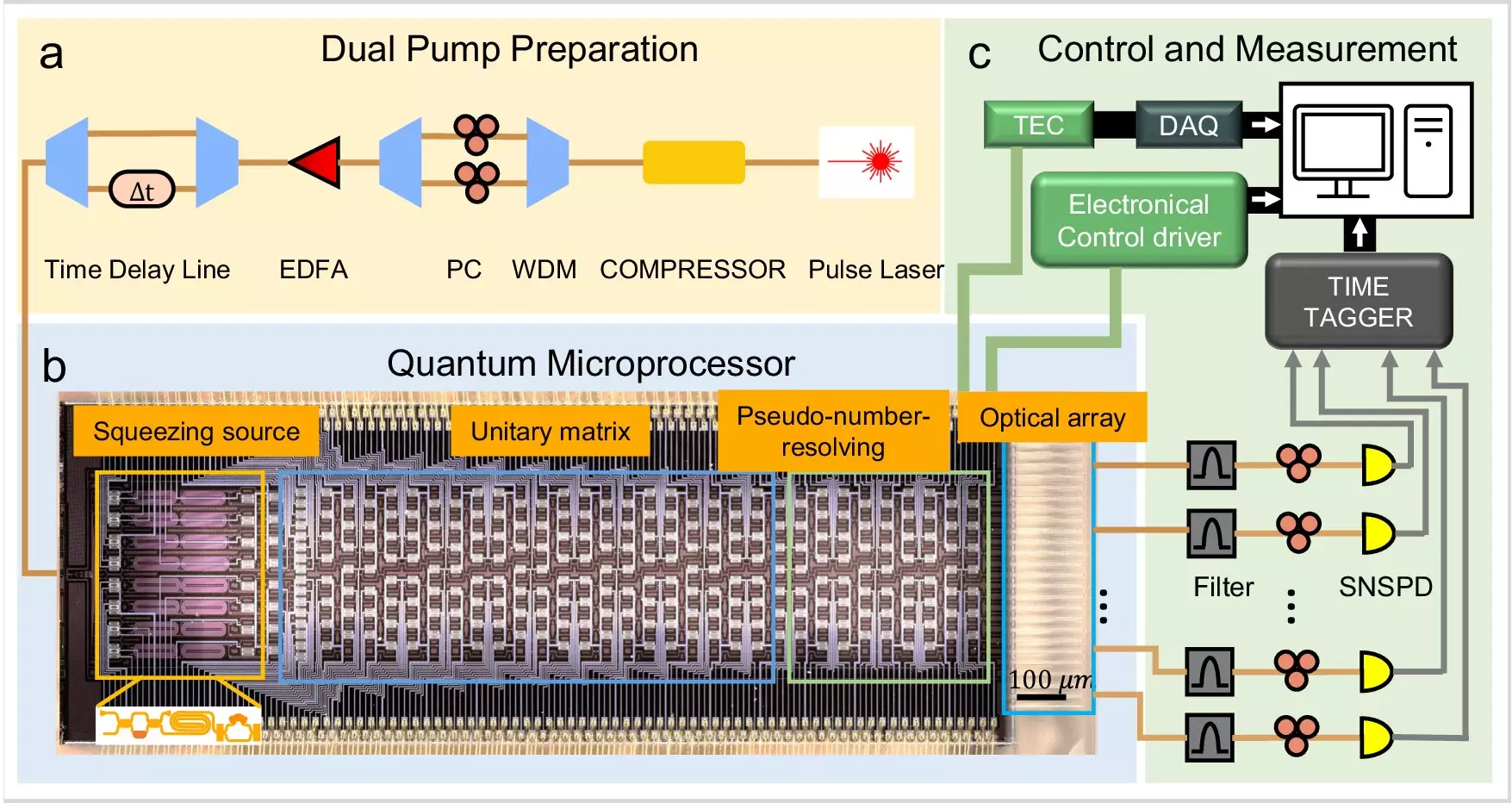Quantum simulation is revolutionizing the way scientists study complex systems that are challenging to tackle using traditional computers. From financial modeling to pharmaceutical discoveries, quantum simulation has opened up new avenues of research in various fields. One such area where quantum simulation plays a crucial role is in molecular spectroscopy.
Exploring molecular vibronic spectra is essential in understanding molecular properties for design and analysis. However, traditional supercomputers struggle to efficiently solve this computationally difficult problem. Researchers have been working tirelessly on quantum computers and algorithms to simulate molecular vibronic spectra. Despite their efforts, they have been limited to simple molecule structures due to low accuracy and inherent noise.
A team of engineering researchers at The Hong Kong Polytechnic University (PolyU) has made a groundbreaking advancement by developing a quantum microprocessor chip for molecular spectroscopy simulation. This achievement marks a world-first in simulating actual large-structured and complex molecules accurately. The research, published in Nature Communications, showcases the development of a large-scale photonic network with squeezed vacuum states for molecular vibronic spectroscopy.
This cutting-edge technology not only solves complicated quantum chemistry problems but also opens up doors to quantum computational applications beyond the capabilities of classical computers. The quantum microprocessor chip, led by Professor Liu Ai-Qun and Dr. Zhu Hui Hui, demonstrates the potential for speeding up tasks like simulating large protein structures and optimizing molecular reactions with higher accuracy.
Quantum technologies are crucial in advancing scientific fields like material science, chemistry, and condensed matter physics. The quantum microprocessor chips offer a promising alternative for quantum information processing. The integrated quantum microprocessor chip developed in this research paves the way for practical applications such as molecular docking and quantum machine learning techniques.
The research conducted at The Hong Kong Polytechnic University represents a significant advancement in quantum technology and its potential applications in quantum computing. By successfully tackling the challenges of molecular spectroscope simulation using a quantum computing microprocessor, the team has set the stage for further innovations in quantum simulation. This breakthrough underscores the immense potential of quantum technology in shaping the future of molecular spectroscopy.


Leave a Reply